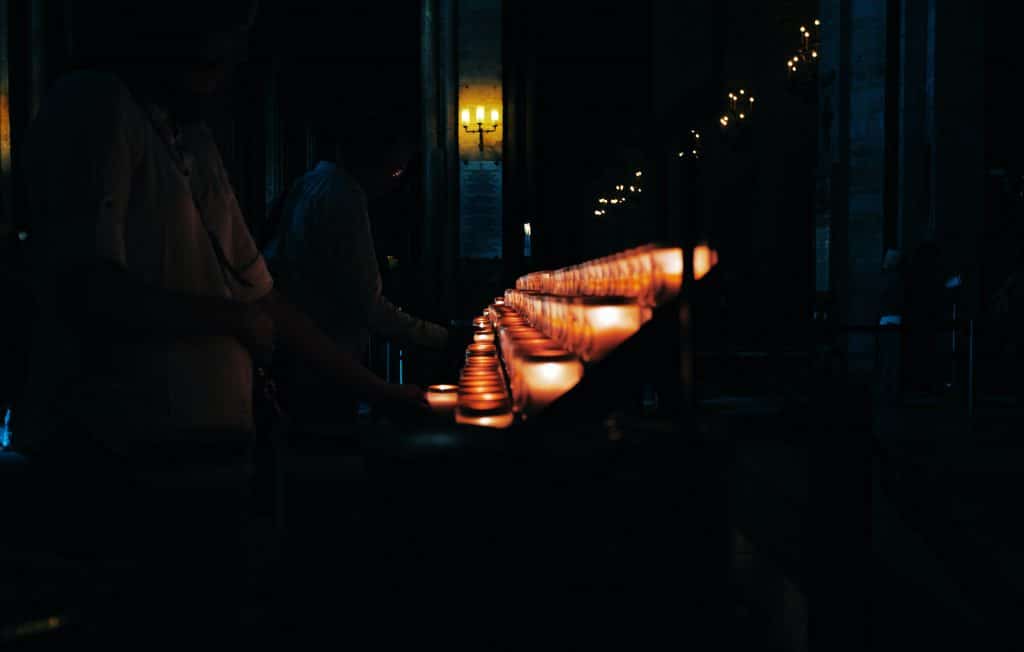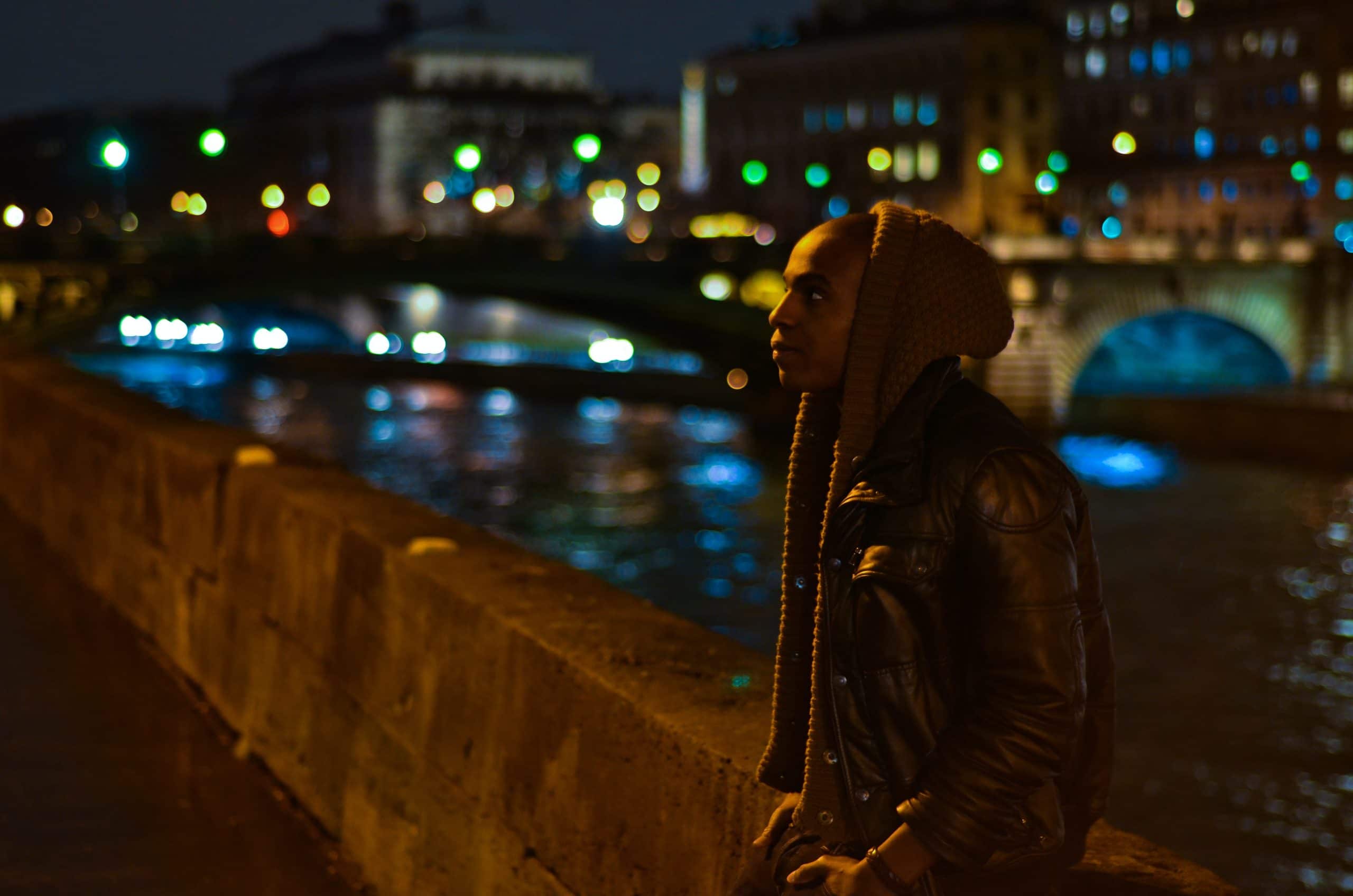Waiting is very difficult.
There’s a great experiment that was done decades ago, where children were sat before a table in a room by themselves. A marshmallow was placed in front of them. They were told if they could wait without eating the marshmallow for a short amount of time, they would get a second marshmallow when the time was up.
This experiment has been repeated many times. You can see it on YouTube. As soon as the adult leaves the room, the kids’ eyes are fixated on that marshmallow. Some get up close and sniff it. One little boy puts his tongue out to lick it. It is hard to wait.
But in the original study, they found that kids who were better at waiting to win that second marshmallow actually performed better on their SATs later in life. There was a maturity about those kids, because they knew it was worth waiting.
How are you doing with waiting? Many of us have been in a long season of waiting for something. What one thing are you waiting for? Maybe it sounds trivial, but what’s your marshmallow? Money to pay the bills? Career advancement? Finding that someone? Your kid to come back? A person to come to know Jesus? Justice?
It’s hard to wait when we can see that thing in front of us, like wrapped presents under the Christmas tree or a marshmallow on a table. But it is even harder to wait when we don’t see it. Because it is out of sight and out of reach, it seems impossible to grasp.
Waiting is one thing. But waiting with hope is another.
Hope can feel unsafe. Unsafe because we’re scared of disappointment, the emotional deflation after a letdown, or just feeling stupid that we believed it could happen. This can be especially true when we’re waiting on God to do something: to answer a prayer, to fulfill his promises, to soften a person’s heart.
It is hard to wait with hope. We don’t want to feel tricked. And so, lingering in cynicism feels safer than waiting with hope.
Take a moment to read a passage of scripture where Mary and Joseph bring the newborn baby Jesus to the temple to be presented to God: Luke 2:21-38. At the temple, they meet a man named Simeon, who recognizes that the baby Jesus is the Messiah. But they also meet Anna.
Anna was a prophetess. As a prophetess, God spoke to her in a way that was uncommon. We know her dad was named Phanuel, and that she was part of the tribe of Asher that were deported to Assyria centuries earlier when Assyria invaded Israel.
But Luke emphasizes her old age. She is old. She is at least 84 years old. In that time, when people didn’t live nearly as long as we do, that was old. Furthermore, some scholars believe that she might have been 104 years old. Whether 84 or 104, she had lived a hard life during all those years. If she was like most women in her day, she would have been married when she was a teenager. She lived with her husband for seven years. But after seven years, her husband died. She was left a widow. In that day, this was a tragic situation. Women’s hope of economic survival on their own was slim. And Anna did not remarry.
But though her home had been torn apart by death, she found a home in the temple, the very center of where Israel worshipped God. Now, the temple was meant to be the place where heaven met earth, where God met humanity, where the Lord dwelled among his people. But it had fallen far from that. Anna lived in a time we call the intertestamental period, between the end of the Old Testament and the beginning of the New. That 400-year period was a period of silence and oppression. The last prophet to speak officially as the voice of God was Malachi, hundreds of years earlier. So God had been silent.
Not only that, but Rome was the almighty empire that controlled much of the world, including Israel and Jerusalem. Rome was Israel’s oppressor.
Anna was old. She had lived a rough life during a challenging time. But Anna was waiting with hope. She was waiting specifically for something that she could not see: “the redemption of Jerusalem.”
Redemption means to “buy back.” The prophets had prophesied about a time when God would act decisively for his people, sending a king to restore power to the throne of Jerusalem, and freeing Israel from their oppressor. And when that happened, the people of God would be set free to be all that they had been called to be, fulfilling God’s purposes for them in the world and being a light to the very nations that oppressed them. Anna was waiting for her people to be redeemed by God, as he had promised.
But with such a hard life during a difficult time, how did she continue to wait…with hope?
In verse 37, Luke tells us that “she did not leave the temple, serving God night and day with fasting and prayers.” When it says she did not leave the temple, that means that she had probably been at the temple for a good portion of her widowhood….decades. And while she was there, she probably helped with the temple upkeep, or encouraged worshipers who came to offer sacrifices.
But what might be most significant to us as we think about waiting with hope is that she served with fasting and prayers. She fasted and prayed for decades.
What are we to make of that? In the midst of hardship, oppression, and waiting, Anna’s chief concern was connection with God. She prayed. She fasted. Day after day before her Lord. Year after year before Israel’s God. Decade after decade kneeled before the One who had promised to redeem Jerusalem.
And as Anna prays and fasts, she is not a bitter old woman who’s edgy because her life went sideways and now all she does is babble about Roman politics. No. She is a woman of deep hope who is used to waiting in the midst of suffering. N.T. Wright calls her a woman of “patient hope” in the midst of a life of suffering. And it seems to be her devotion to God through prayer and fasting that enables her to be a woman who waits with patient hope.

When we are waiting for God, we can fall into this pattern of praying like God is a genie or Santa Claus. “God, I’m following you (i.e. I’ve been a good boy or girl), so I want you to give me this (i.e. here’s my Christmas list).” And then when we don’t get what we asked for, we get tired of waiting, we assume prayer doesn’t work, and we give up hope.
But what if prayer is about trusting that God will work as he says he will, and asking God to help us wait with hope until he does? What if prayer is asking God to help us wait for him to work, even when it doesn’t look like he will? What if prayer is less about changing God’s mind to answer our hopes, and more about changing our minds to fill us with God’s hope?
We pray for God to act, but we also pray for him to help us wait with hope until he does.
Sometimes we can get in the feels about fasting. We can tend to see it through a legalistic lens. But what if fasting is a tool that helps us wait with hope? Theologian Joel Green says that fasting is a form of protest that all is not right in the world. But fasting from something is also “an expression of hope, a form of prayer entreating God to set things right.” Fasting before God is a reminder for us that there is a God who is above all things, who can change anything, and has promised many things. Fasting and prayer are incredible resources for waiting with hope. But we will always need to practice them longer than we expect. We will need to learn to persevere in them like Anna, believing in God’s promises whether it be eight days, years. or decades.
It had been 400 years of silence, but Anna waited in hope. She hadn’t been married in 84 years, but Anna prayed with hope. Jerusalem wasn’t redeemed, but Anna fasted and waited.
And then, all of the sudden, the Redeemer shows up at the temple.
Mary has birthed the baby Jesus in Bethlehem. Forty days after Jesus’ birth, he is brought to the temple in Jerusalem to undergo Jewish ceremonial purification and to be presented to God, as commanded in Leviticus 12. There at the temple, Mary and Joseph meet a man named Simeon, who, like Anna, has been waiting and hoping. Waiting and hoping for the consolation of Israel. He too has been waiting for God to act decisively, to comfort and rescue his people like the prophets had said.
It had been shown to Simeon that he would meet the Messiah before he died. I’m sure that was hard to wait and wait for this promise to be fulfilled. But then, Simeon seems to be led by God at that moment when Mary and Joseph are there. Simeon sees the baby Jesus, the Messiah, and picks him up and blesses God, saying, “Now, Master, you can dismiss your servant in peace, as you promised. For my eyes have seen your salvation. You have prepared it in the presence of all peoples—a light for revelation to the Gentiles and glory to your people Israel.”
All those years of waiting in hope, but not seeing…now he sees, and now he can die in peace!
And at that very moment—as if she could have timed it herself!—Anna arrives.
After all those faithful moments on her knees, she just so happens to arrive at this moment. It is as if someone had planned all along for her to have a “chance” meeting with the Redeemer of Jerusalem whose coming she had been praying for for years.
What a moment for Anna! This is what she has been waiting for. This is who she has been hoping for.
All sorts of questions come to mind: She was praying for the Redeemer. Did God send Jesus, the Redeemer, because she prayed? She had waited and prayed for decades. What if she had quit praying a week before? What if she had waited, but grown cynical instead of hoping in God? What if she had prayed about stuff that she could see, rather than redemption that she couldn’t see? What if she had given up on God?
I won’t pretend I can answer those questions. The text doesn’t. It just says that Anna prayed, and waited, and fasted, and hoped that God would act according to what he promised.
And God acted according to what he had promised. And, by God’s grace, Anna got to be part of it. Not only did she pray and fast with patience and trust, but she got to see and participate in what God had done!
Maybe there’s encouragement for you here to keep waiting. To keep hoping. To keep praying and fasting for whatever your marshmallow is.
But here’s the thing: often, the waiting is more about who God is making you into as you wait. God wants you to be a person who has deep hope in him. And how can you have hope if you see what you’re waiting for? How can you truly wait in hope if you always have what you want?
The easy reaction would be to become bitter or selfish. The safe reaction would be to be cynical rather than hopeful. At least you wouldn’t be disappointed then, right? But what if the point of waiting in hope through prayer and fasting is to become a person who relentlessly hopes?
Is God worthy of your hope? Is he worthy of your waiting? Of your wrestling as you pray? Of your struggles as you fast?
John Ortberg writes, “Waiting on the Lord is a confident, disciplined, expectant, active, sometimes painful clinging to God. Waiting on the Lord is the continual, daily decision to say, ‘God, I will trust you and I will obey you even though the circumstances of my life are not turning out the way I want them to, and they may never turn out the way I want them to. I’m betting everything on you, God, and there is no Plan B.’ That’s waiting on the Lord. It’s the hardest work of hoping.”
Is the God who raised Jesus from the dead worthy of your hope? Is the God who sent his Son to die for you worthy of your waiting? Is the God who redeems still worthy of your prayers?
Simeon believed so. Anna believed so.
We stand here in 2021, after people like Anna and Simeon waited decades, after Israel waited for hundreds of years for God to act and redeem and comfort. And he did. He sent Jesus. Jesus was the great gift of God to those waiting with hope. We stand here looking back at Jesus’ first coming.
But as we look ahead, towards Christ’s second coming, we don’t see so clearly. And because we can’t see it, we lose heart. We see more brokenness and we grow bitter. We give up on our prayers.

Some friends of mine recently went through something difficult. They were about to get their dream home, and it fell through. It’s not as simple as it sounds: they have eight children, four of them biological and four of them adopted. What makes their family so unique is that two of their adopted children have dwarfism. They are very open in a healthy way about the challenges and struggles that entails.
So, they found this home that was perfect for their family, and then lost it. I’ll quote my friend’s own words that she posted on social media:
“This week we lost our dream home and the deposit that went with it. The home was next door to my friend’s widower and young children, and there were plans and hopes and dreams that stretched out in decade-length images in my mind. Then our inspector found a little bit of toxic mold, and then a little more, and all of our best laid plans ran through our hands like so much water. I am left with this: God is good, and He is kind. He is beyond time and sees everything that is to come. His plans are perfect, and He is working all things for our good and His glory, and I don’t have to understand. But above all: THIS is not our Home. He is coming soon, and He is going to make all things new from His righteous throne, and the skies above us will be rolled up like a scroll. Holy, Holy, Holy is the Lord our God!”
Friends, in the midst of all the uncertainty, you have a certain hope: Christ came once, and he will return. This life will be full of joys and disappointments. But don’t play it safe. Take the risk and wait with hope. When Christ returns, you will not be disappointed that you did.
Reality Changing Observations:
1. Have you ever had to wait a very long time for something prayed for? What was the hardest part of that experience?
2. Did the waiting change you?
3. How does the account in Luke 2 make you feel about your waiting? Does it help you understand it in the bigger picture?






